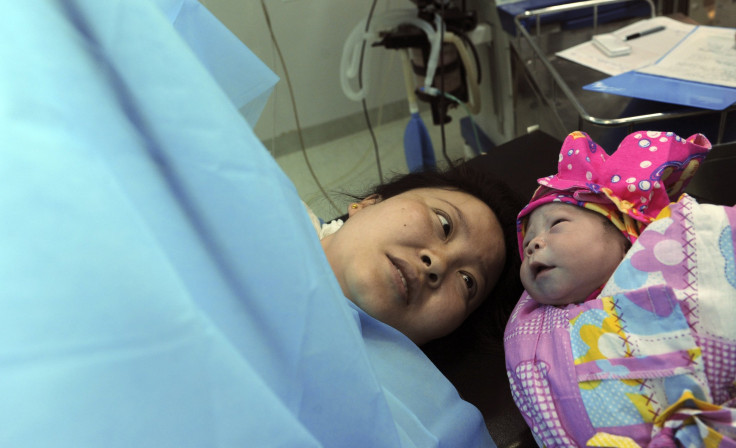Birth Tourism: LA’s ‘Maternity Hotels’ Enrage Residents, But Are They Illegal?

Want your child to become a U.S. citizen? It’s simple: Become a “birth tourist,” your quick and easy short cut to the American Dream.
Hundreds (if not thousands) are in on the trick, booking monthlong stays at the so-called “maternity hotels” popping up with great frequency in the Los Angeles suburbs.
It’s a trend that, thus far, has flourished right under the nose of the law. But there’s a battle brewing in suburbia as outraged residents press Los Angeles County to take action and prevent their quiet streets from turning into maternity wards.
Los Angeles County Supervisor Don Knabe called on the Board of Supervisors this week to crack down on the “hotels,” which are increasingly prevalent in the San Gabriel Valley.
“Across the United States, the recent trend in ‘birthing tourism’ has led to money-making schemes that put the health and safety of mothers and babies in jeopardy,” Knabe said. “We have had an increase in complaints from neighboring residents, concerned about the well-being of those in these homes, as well as concern about the quality of life in residential neighborhoods when these facilities are allowed to operate.”
Responding to a Jan. 14 status report, he sought the board’s support to direct the county counsel to draft a proposed ordinance to regulate the hotels, while also calling on the CEO to lead multi-agency inspection teams.
“These maternity hotels have grown beyond the scope of a zoning issue,” said Knabe. “The conditions inside some of these houses are putting the lives of the mothers and babies at risk, and we must do what we can to protect them and stop this illegal activity.”
Knabe asked for funding to assist the inspectors as well as additional staff, including Mandarin and Cantonese translators.
Inspectors have visited 20 alleged maternity hotels over the past month and were granted permission to enter at just seven. Of those, three were found to be in violation of zoning codes, according to the Jan. 14 report.
"It has been our experience that county inspectors typically do not gain access to inspect alleged maternity boarding houses as occupants do not answer the door even when it's clear that there are people home," the report stated. "When occupants answer the door, they often state that they do not speak English."
The overwhelming majority of so-called birth tourists are wealthy Chinese, and as more acquire the means to travel abroad, officials worry that the trend will explode.
But Virginia Kice, Western regional communications director for U.S. Immigration and Customs Enforcement, or ICE, said, “There’s nothing in the law that makes it illegal for pregnant women to enter the United States.”
“However, if a pregnant woman or anyone else uses fraud or deception to obtain a visa or gain admission to the United States, that would constitute a criminal act and be a matter of interest to Homeland Security Investigations,” she added.
Kice said HSI’s focus in any visa fraud probe would be on the instigators or organizers, “since that is key to disrupting and ultimately dismantling the criminal activity.”
“Often the defendants who orchestrate such schemes face violations beyond just visa fraud. Depending on the nature of the activity and the suspects’ financial dealings, they may also be charged with conspiracy, money laundering or making false statements.”
In short, however, there’s technically nothing illegal about foreign nationals coming to the United States to give birth, as the 14th Amendment to the Constitution grants citizenship to any child born on American soil, regardless of their parents’ citizenship.
What officials like Knabe can do to shut these facilities down is look for any breaches of zoning, construction of additional rooms without permits, or health and safety violations.
The term hotel can be a bit misleading, as most places birth tourists go are merely single-family homes that have been carved into bedrooms where women pay to sleep in anticipation of giving birth. Their increasing presence in upscale Los Angeles area neighborhoods has angered neighbors, as exemplified by the incident in Chino Hills last month.
Suspicious neighbors claimed that a large hilltop home, located in an area zoned for single-family houses, was used as a hotel, causing traffic problems and spilling an estimated 2,000 gallons of sewage, according to the Los Angeles Times. The county sued the owners and shut down the house after it was found to have 17 bedrooms and 17 bathrooms.
A website that police believe was associated with the facility touted a 30-day stay with a month of prenatal care, shopping trips and assistance obtaining American passports for the newborns -- all for about $11,000. It also included tips for expectant mothers on how to hide their pregnancy from Customs and Border Protection officers while entering on a visitor’s visa.
According to the Jan. 14 report, Los Angeles County has received some 65 complaints since December about such maternity hotels in in the San Gabriel Valley alone. By comparison, there were just 15 complaints in the five previous years.
© Copyright IBTimes 2025. All rights reserved.






















